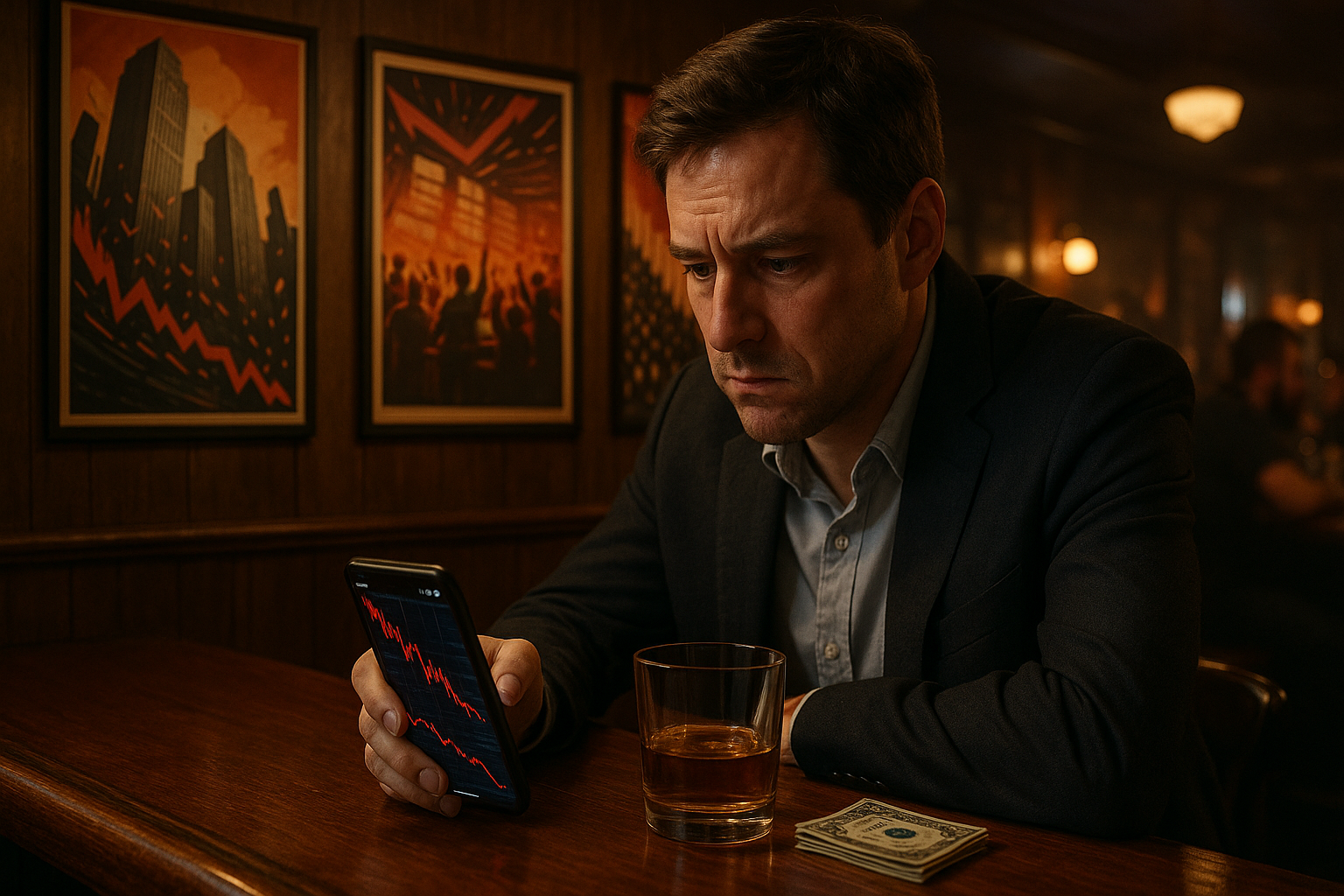I was sitting in a dive bar in Chicago last week, talking markets with some traders from the Board of Trade. One guy—mid-thirties, expensive watch, anxiety etched across his face—couldn't stop checking his phone for the latest yield curve updates. "It's all gonna collapse," he muttered. "Just like Burry said."
Michael Burry. Again.
Ever since Adam McKay turned Michael Lewis's book into Oscar-winning entertainment back in 2015, I've watched a curious phenomenon unfold: an entire generation of investors whose market worldview was fundamentally shaped by watching Christian Bale bang drums and stare at spreadsheets. The Big Short didn't just dramatize the 2008 financial crisis—it created what I've come to call the "disaster porn investor."
These folks are everywhere now. They populate Reddit forums and Twitter threads, constantly predicting the next market apocalypse. They've watched Jeremy Irons coldly discuss financial annihilation in "Margin Call" and Leonardo DiCaprio snort coke off... well, everything... in "Wolf of Wall Street." And it's fundamentally altered their financial DNA.
Look, I get it. These movies are compelling. They're sexy. They transform the often mundane reality of market mechanics into high drama. Who wouldn't want to be the brilliant contrarian who sees disaster coming while everyone else is blindly partying?
But here's the thing (and I've covered market psychology for over a decade now): this cinematic financial education has created a permanently skewed risk assessment framework. When your introduction to markets comes from Hollywood's most dramatic narratives of spectacular failure, you're always hunting for the next big collapse.
"I call it Cinematically-Influenced Financial Identity Formation," explained Dr. Sarah Wellman, a behavioral finance expert I spoke with last month. "These dramatic narratives become foundational schema through which people interpret all subsequent market information."
The results are predictable—and costly.
Since The Big Short hit theaters, the S&P 500 has climbed roughly 150%. Bitcoin? Up about 5,000%. Meanwhile, the permanent bears have been sitting on cash, buying gold, and waiting for a collapse that keeps refusing to arrive on schedule.
They've missed one of the greatest wealth creation periods in market history.
What's fascinating is their persistence despite being consistently wrong. Each new economic data point becomes fresh evidence in their crash narrative. Yield curve inversions. Fed policy shifts. Housing data. All filtered through a lens of impending doom.
"There's something almost religious about it," noted Jamie Fierstein, a wealth advisor I've known for years. "They'd rather be right about a crash eventually than wealthy now."
The psychology makes sense. Bearishness signals sophistication—you see what the sheep don't. There's also an asymmetric status reward: predict ten crashes that never happen and you're just cautious; predict one that does and you're a genius forever.
(The fact that permanently bearish investors rarely make money is conveniently overlooked in this calculation.)
The irony? These Hollywood disaster tales were meant as cautionary lessons about systemic risk and Wall Street excess. Instead, they've created a generation of investors so afraid of the next crash that they've missed the recovery and expansion that followed the last one.
I've watched 22-year-olds—who were literally children during 2008—confidently explain to seasoned portfolio managers why "everything is about to collapse." Their evidence? Patterns they recognized from movies and YouTube explainer videos.
This isn't to say markets don't crash. They do! The critics aren't entirely wrong. The 2008 crisis revealed profound systemic issues. But markets also rise. Economies grow. Creative destruction happens, and new value emerges.
Sometimes the most contrarian move isn't shorting the market—it's just staying invested and being patient.
As for my anxious trader friend at the bar? He finally put his phone away and ordered another round. "Maybe I should just buy an index fund," he said with a half-smile. "Probably would've done better than all my crash predictions."
Smart man. Even Michael Burry eventually closed his positions and took profits.
